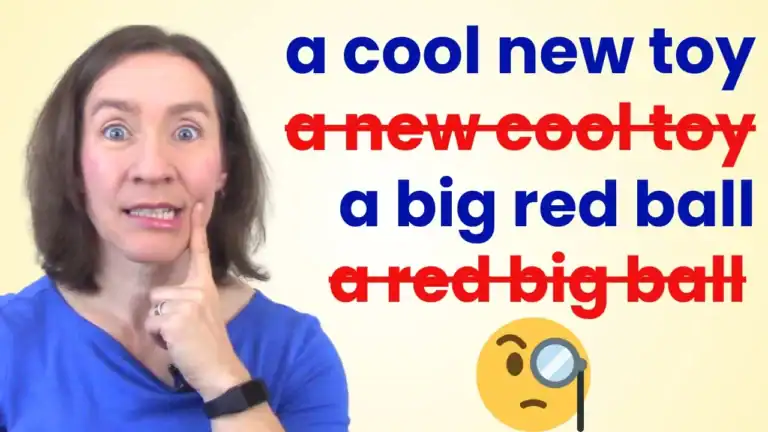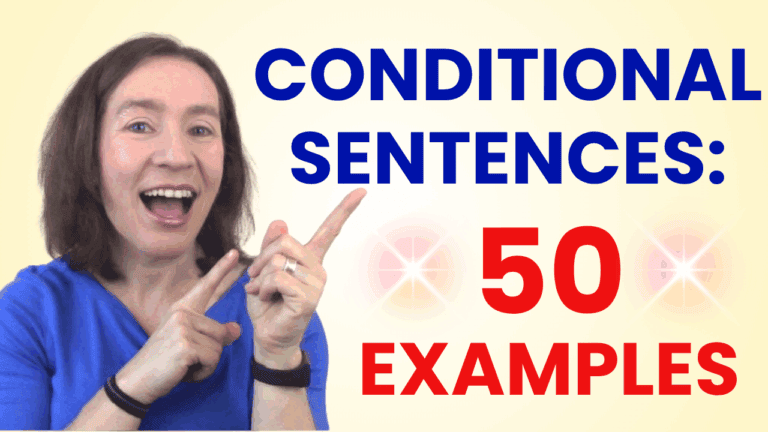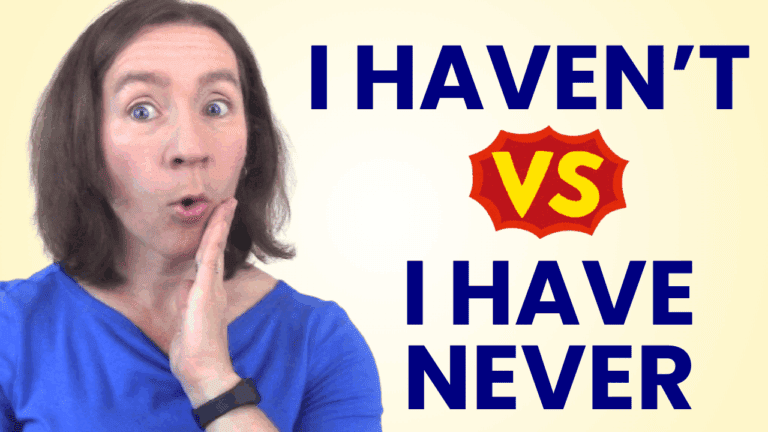Download: Text & Quiz / Audio
(Right-click each link and select “Save as…”)
Today we’ll focus on mistakes with adjectives and adverbs.
The first error involves the word “enough”:
Error #72
Don’t say:
- This box isn’t enough big for all the books.
Say:
- This box isn’t big enough for all the books.
Enough goes after adjectives, adverbs, and verbs:
- Are you old enough to see this movie?
- She’s smart enough to take the advanced class.
- You sing well enough to be a professional!
- The teacher speaks slowly enough for me to understand.
- I play the piano, but I don’t practice enough.
- Make sure you eat enough now so that you’re not hungry later.
Enough goes before nouns:
- There are enough chairs for everybody to sit down.
- There isn’t enough information in this report; I need more details.
- We don’t have enough people to form a soccer team.
- Do you have enough money to buy that motorcycle?
Error #73
Don’t say:
- I can’t believe how much stubborn he is.
Say:
- I can’t believe how stubborn he is.
We only use how much and how many before nouns.
With adjectives and adverbs, we use only how:
- How tall are you?
- I want to see how comfortable the couch is before buying it.
- How quickly can they finish the project?
- This software measures how efficiently the employees are working.
Error #74
Don’t say:
- These are my favorites shoes.
Say:
- These are my favorite shoes.
- These shoes are my favorites.
Adjectives before nouns are always singular in English, even if the noun is plural!
- Our house has three small rooms.
- The forest is filled with giant trees.
- I have a couple of friendly dogs.
- I’ve finished this book, now I’ll read the other ones I borrowed from the library.
Some adjectives – especially “others” – can be used in plural form, if the noun was mentioned earlier (and is not directly after the adjective). Here are two examples:
- I have many pairs of shoes, but these red shoes are my favorites.
(= favorite shoes) - The boss gave raises to some employees but not others.
(= other employees) - Some of the shows on this channel are great, and others are terrible.
(= other shows on this channel)
Error #75
Don’t say:
- Last night I was a lot tired.
Say:
- Last night I was so/very/really tired.
The words so, very, really, are all used before adjectives and adverbs to add emphasis or describe something that is intense:
- This book is so/very/really interesting.
- She plays the piano so/very/really well!
- They moved here so/very/really recently.
A lot of / lots of are used before nouns to describe a large quantity:
- I ate a lot of / lots of pizza last night.
- There were a lot of / lots of kids at the playground.
Note that it’s always a lot and never alot.
We can also use a lot after verbs to describe something we do frequently/often:
- I read a lot.
- Do you exercise a lot?
Error #76
Don’t say:
- My new computer is more better than my old one.
Say:
- My computer is better than my old one.
- My computer is much better than my old one.
Let’s review how we form comparative adjectives:
- 1 syllable: fast → faster
- Words ending in Y: easy → easier
- 2+ syllables: popular → more popular
- Irregular: good/bad → better/worse
We only use “more” to make comparisons using adjectives of 2+ syllables: more popular, more interesting, more efficient, more comfortable, etc. The word “better” is already a comparative, so we shouldn’t add “more.”
If you want to add extra emphasis to a comparative, you can add “much”:
- My new computer is much better than my old one.
(not just a little bit better… MUCH better) - This lesson is much easier than yesterday’s.
- My sister is much more popular than me.
- The problem is much worse than we imagined.
Error #77
Don’t say:
- My apartment is ten miles far from here.
Say:
- My apartment is ten miles away from here.
When talking about general long distances, we can say far from or far away from:
- My apartment is far (away) from here.
However, when talking about a specific distance, we say away from or simply from:
- My apartment is ten miles away from here.
- My apartment is ten miles from here.
This is confusing because the question might ask “How far…?” but we don’t use the word “far” when giving an answer with a specific distance:
- How far is the nearest gas station? / Where is the nearest gas station?
It’s about two blocks away. - How far is the museum from here?
At least five miles – you should probably take the bus.
You can only use “far” in the answer when speaking in general terms:
- It’s not far. (it’s a short distance away)
- It’s pretty/quite/very far. (it’s a long distance away)
That’s all for now. The next lesson is our last one in the grammar section, and I’ll teach you about a number of mistakes that I’ve found in my students’ written English, which they’ve sent in for correction in other courses. See you next time!








